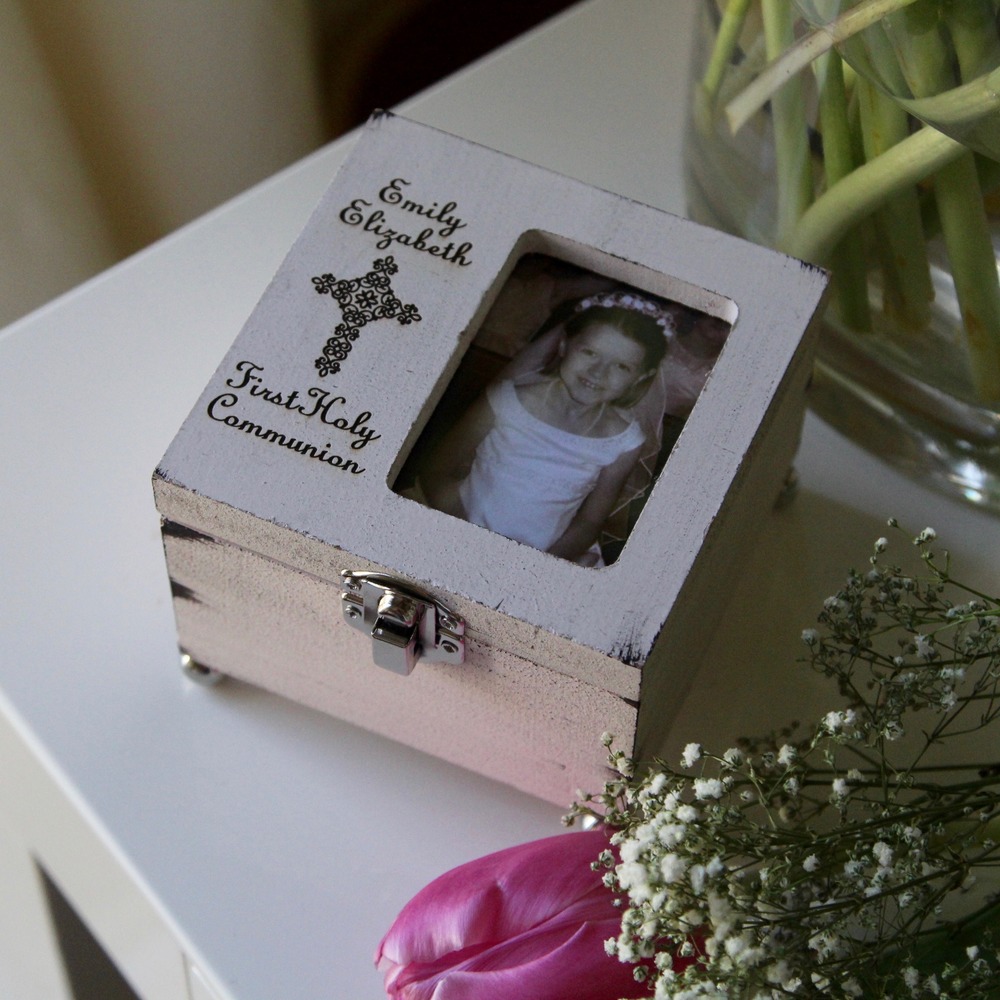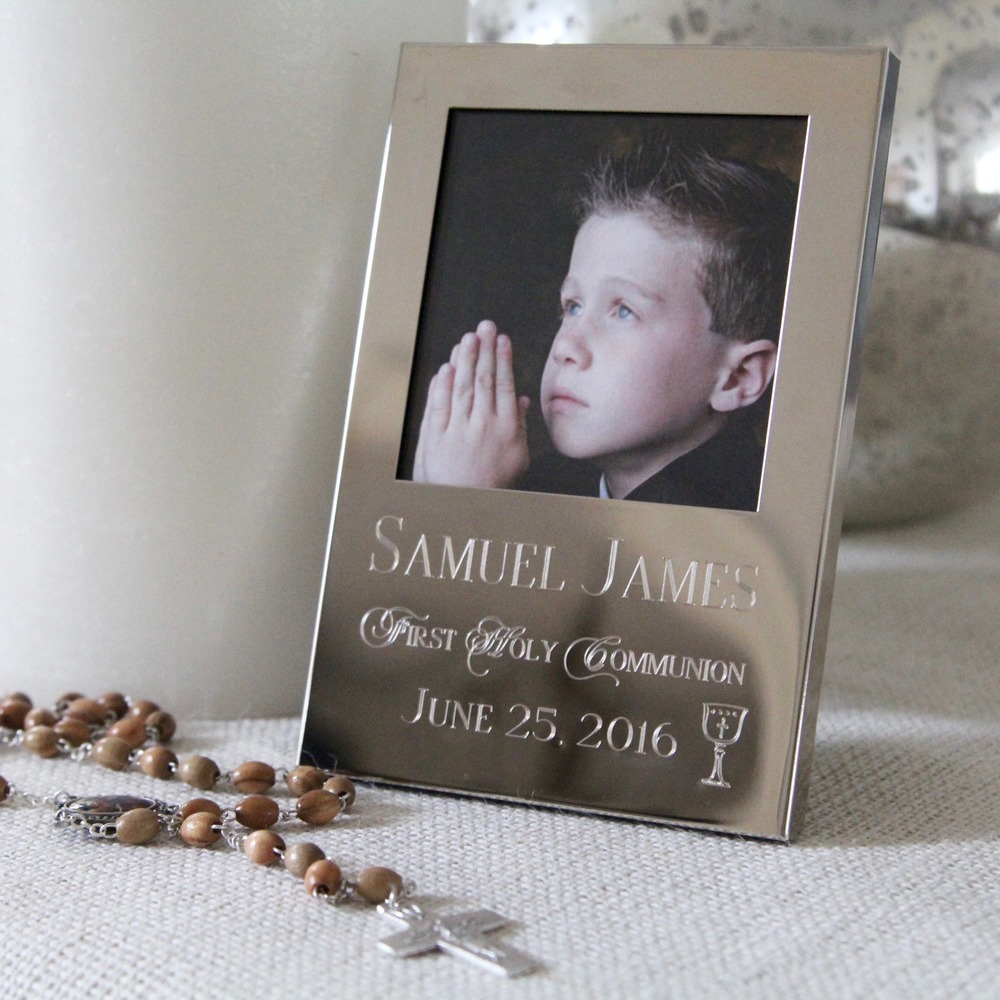How to Plan a First Communion Party
Mar 09, 2016 by Laura Jean Rabiipour
At this major event a child will, for the first time, receive Jesus—Body, Blood, Soul, and Divinity—in the Blessed Sacrament, usually along with many other children their age. And parents have a lot to think about and prepare to celebrate this sacred occasion in their child's life: the outfit, the ceremony, the food, and the festivities.
We’ve compiled some best practices regarding invitations, guests, and gifts for First Communion Day. These are not hard and fast rules but rather guidelines to help make the start of First Communion season easier to handle.
PARTY
Q. Do you need to have a party?
Most Catholic families choose to throw a First Communion party. While the party is not mandatory, it is a good way to acknowledge the First Communicant and celebrate the importance of the Holy Eucharist which is now a part of the child's life. Your child has invested time and effort in faith formation classes, and the party provides an opportunity to celebrate their dedication to the Catholic faith as well as to make this day even more memorable. Just make sure you don't lose sight of the true reason for the celebration: Jesus in the Blessed Sacrament, newly present in the soul of your child!
GUESTS
Q. Who do you invite?
First Communion parties are usually intimate affairs including godparents, grandparents, siblings, relatives, and friends. Guests are typically limited to individuals with whom the child is particularly close or who have impacted the child's religious development. In most cases, the entire extended family does not attend. But use your best judgment: if there is someone that both you and your First Communicant want to be in attendance, it never hurts to extend an invitation.
Q. Can I invite non-Catholics?
Just as non-Catholics may attend Sunday Mass with you, there is no reason to exclude them from a First Communion ceremony. A person can still impact your child’s life and moral development even if they are not Catholic, and it is important to include them. Make sure that the individuals invited are aware of the sacramental importance of the occasion and the proper behavior during Mass. Be aware that they may feel self-conscious or uncomfortable, so take the time to explain the Order of the Mass and their options during the reception of Holy Communion (remaining in the pew or approaching the altar with arms folded over their chest, so the priest knows they are not receiving the Eucharist.)
INVITATIONS
Q. Do you need invitations for First Communion?
It is not required to send out formal invitations, but it is customary, and helpful. This will avoid frantic calls on the big day regarding time, location, and parking. Make sure that the invitations you choose reflect the religious solemnity of the occasion. After all, the day does center around the Holy Eucharist.
Be sure to include:
- Date of the First Communion
- Name and address of parish
- Location of overflow parking
- Time of ceremony
- Time of the after-party
- Include an RSVP if you need head counts
Q. When do I need to send out First Communion invitations?
It is best to send the invites 4-6 weeks before the ceremony. This will give your guests enough time to plan ahead and offer their regrets if they can't attend.
Q. Do I need RSVPs?
The only reason you would include RSVPs would be if you or your officiate require a headcount for the ceremony. Check with your parish first, as there may be limited seating.
GIFTS
Q. Do guests bring gifts?
Most of the guests will want to come with something in hand, whether it be a card or a gift. This is an opportunity to celebrate your child's faith. Remind your guests that whatever they bring, gifts for the occasion should be religious in nature.
Consider that some of your guests may have never attended a First Communion celebration before, and they may be unsure of what kind of gift is appropriate. Refer your friends and family to our First Communion Gift Guide for Boys and First Communion Gift Guide for Girls if they are having trouble choosing a gift.
Q. Should thank-you cards be sent afterwards?
It is always a polite gesture to show your gratitude with a handwritten thank-you note. As a parent, you may feel the urge to send them yourself. But it is good to involve your children in this task as well. Use this as an opportunity to instruct your child on thankfulness and the protocol for sending thank-you notes. No matter how the card looks, it will be appreciated!
MOST IMPORTANT OF ALL
Jesus in the Holy Eucharist should be the main focus, and the solemnity of the event preserved throughout the day. Make sure your child is spiritually prepared beforehand and understands that this is a new and special moment in their relationship with Him.
Read next: 3 Ways to Spiritually Prepare Your Child for Their First Communion.
This really is a time for rejoicing and celebrating. And think about how much it pleases Jesus to be so closely united to yet another soul! Parties are a wonderful way to express to your child how joyful this day is. God bless you and your First Communicant!
This article has been updated and was originally published in March 2014. © The Catholic Company. All rights reserved.







